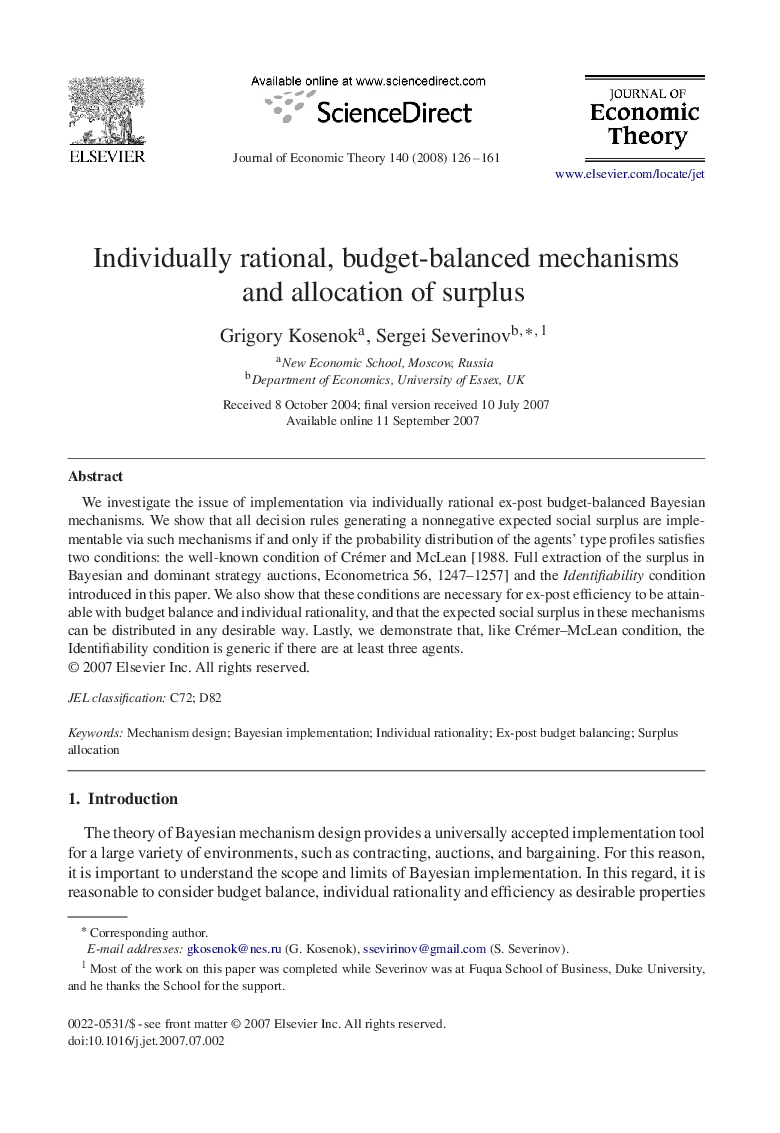| Article ID | Journal | Published Year | Pages | File Type |
|---|---|---|---|---|
| 957681 | Journal of Economic Theory | 2008 | 36 Pages |
Abstract
We investigate the issue of implementation via individually rational ex-post budget-balanced Bayesian mechanisms. We show that all decision rules generating a nonnegative expected social surplus are implementable via such mechanisms if and only if the probability distribution of the agents' type profiles satisfies two conditions: the well-known condition of Crémer and McLean [1988. Full extraction of the surplus in Bayesian and dominant strategy auctions, Econometrica 56, 1247-1257] and the Identifiability condition introduced in this paper. We also show that these conditions are necessary for ex-post efficiency to be attainable with budget balance and individual rationality, and that the expected social surplus in these mechanisms can be distributed in any desirable way. Lastly, we demonstrate that, like Crémer-McLean condition, the Identifiability condition is generic if there are at least three agents.
Related Topics
Social Sciences and Humanities
Economics, Econometrics and Finance
Economics and Econometrics
Authors
Grigory Kosenok, Sergei Severinov,
